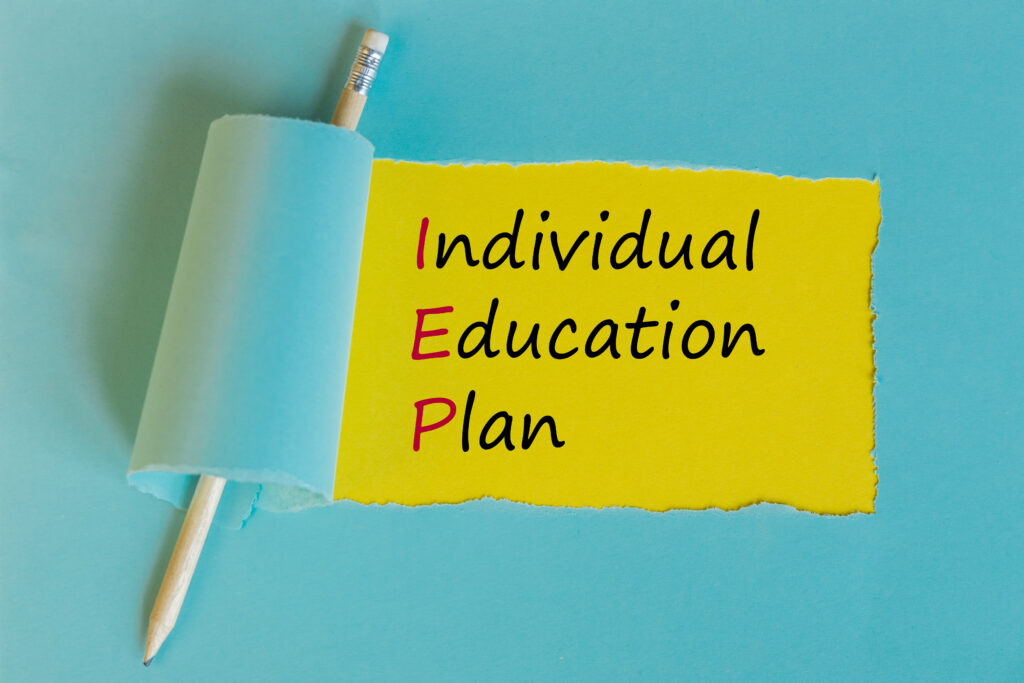How to Advocate for Your Child’s Individual Education Plan (IEP)
Here are five tips to advocate for your child’s Individual Education Plan (IEP) so you and your child can have less stress and more success this school year.
CanCan Mom’s hundreds of creative Get-to-Do Lists, routines, schedules, and solutions all make motherhood easier and more fun! Recognizing that you “Get To Do” these things because you are blessed to have a family simply reminds you to Interact with love and laughter more often than impatience.
Have fun incorporating my unique Fast & Free Quick Steps into your daily life!

Moms Crushing It with CanCan Quick Steps
Here are five tips to prepare for and ease the stress of Individual Education Plan (IEP) annual meetings for special needs children:
- Prepare Yourself in Advance
- Decide What You Want Before the Meeting
- Strive to Be Cooperative
- What to Bring with You
- The IEP Meeting
How to Best Advocate for Your Child’s Education (IEP Plan)
Children who receive resource support in the public school system have an Individual Education Plan or IEP designed to set appropriate goals for each student.
At least once per school year, parents receive an invitation to attend an IEP meeting to review and discuss the child’s progress and create new goals for the following year.
Three of my eight children had significant speech delays and didn’t speak until they were at least three years old. Because of this, I have over 20 years of experience dealing with the resource support system.
There is no question that it is painful to watch your child struggle with a learning disability or developmental delay, but there are plenty of strategies you can use to advocate for the best possible education for your child.
– CanCan Mom, Cheryl L. Butler

What is an IEP Meeting?
An IEP meeting is a team meeting run by the school district. The IEP team includes administrators, resource support teachers, therapists, social workers, and you, the parents. The team may also include others who know your child.

During the meeting, the team makes recommendations about available resource support services. These are later put into a written document called the IEP.
The Individualized Education Program is a road map guiding your child’s education. It explains to you and the district what extra support services your child will receive, as well as outlines the goals to address. The district is legally responsible to furnish the services in the IEP.
CanCan Mom
Preparing for and attending IEP meetings can be emotionally draining and even discouraging for parents. But it doesn’t have to be. These five tips will help you go into the meeting feeling less intimidated and more confident.
Tip 1: Prepare Yourself in Advance
You know your child better than anyone and will always be his/her biggest advocate. So don’t be afraid to honestly showcase your child as he/she really behaves and learns at home because, at home, we often see a much different child than the school team does in their environment. I call this “parental cheerleading,” and it can be exhausting!
Keep in mind that teachers attend IEP meetings all year long. Your child is not their only resource support student; they look at the situation more clinically. That’s why you might hear more negative commentary about what your child can’t do yet (keyword–YET!) and less about all the wonderful things he/she can do.
During my IEP meetings, I suggested that the team focus on the positive things my child was doing first and then discuss the challenges and strategies second.
cANcAN mOM
If you try to set an encouraging tone from the beginning, chances are your team members will follow suit. If they don’t, remember that you have a legal say in your child’s educational plan, so stay the course with a pleasant but firm attitude.
Tip 2: Decide What You Want Before the IEP Meeting
Prior to the meeting, figure out what educational goals you want for your child. If you have a three-year-old who is speech-delayed like my children were, your biggest desire is probably for consistent verbal communication within the upcoming year.
Come to the meeting with a list of questions, such as: How will you try and elicit verbal words from my daughter? Will you communicate with me in a written journal each day about her progress and give me some examples of games I can play at home with her to reinforce what she is learning at school?
– CanCan Mom, Cheryl L. Butler

If you have a child who has been in the school system for several years already, be sure to get out his current IEP along with any updates the school has sent you throughout the year, and do an honest assessment as to whether or not the goals have been, or are being, met.

Keeping a filing system specifically for Resource Support services is essential. Get into the habit of keeping all reports, evaluations, report cards, and IEP plan updates organized and easily accessible.
Tip 3: Strive to Be Cooperative
Always be polite and cooperative with the district. The most successful IEPs are made when parents and the district work together.
CanCan Mom
Try not to be defensive. You will be more successful if you negotiate with your child’s school team rather than attack it. Teachers appreciate relationships with parents that are encouraging and collaborative rather than contentious.

Tip 4: What to Bring with You
• In a notebook with a folder, organize your child’s records chronologically, putting the oldest document on top.
• List your child’s present levels of performance, highlighting strengths and weaknesses. Sections for the list should include social development, physical development, academic achievement, and management needs (aka, what support is needed to help your child learn and behave appropriately).
• Make a list of any other services your child gets, like private therapy.
• Devise an accurate list of goals describing what you believe your child needs and what you want from the district.
• A snack to share with the rest of the team. Food helps break down barriers—even if it’s a bag of hard candies, the gesture goes a long way!
Tip 5: The IEP Meeting
Try to arrive at the IEP meeting at least 15 minutes in advance.
This takes some of the emotional pressure off. It gives you a few minutes of quiet time before the meeting starts rather than rushing through the door without a calm demeanor.
During the meeting:
• Take notes in your notebook. Date the page so you can refer back to it. Outline what was said, by whom, and the outcome.
• Write down the goals that you devise together for the coming year. These may be academic or behavioral.
• Identify any areas of concern you have regarding your child’s progress. Also, list things that have gone well. It always helps to build a relationship with the school if you can provide positives in conjunction with negatives.
• Maintain cordial relationships with each team member.
• Don’t be afraid to ask questions if you don’t understand something. Realize that the people on your child’s IEP team want him/her to make as many educational, developmental, and social gains as possible. They rely on you as the parent to give them a glimpse into your child’s life outside of the classroom. This is essential in helping your child have a well-rounded educational and personal growth experience.
After the Meeting:
• Extend a warm verbal thanks to those in attendance, followed by an email or even a written letter thanking the IEP team members for their involvement (assuming the IEP goals were met). If any teacher was particularly helpful, I make sure to let the principal, superintendent, and/or director of resource services know.
• Not all IEP meetings are going to be perfect. But instead of getting discouraged, use them as motivation and a learning tool for future meetings.
• Within a few weeks, the school district will mail you a revised IEP. Take the time to review it and make sure it coincides with the notes you took during the meeting. If something seems incorrect, call your child’s team leader right away and get it resolved. File IEP in the folder of your notebook for quick reference.
Related: 6 Easy Ways to Help a Child With Learning Differences
How do you deal with your child’s IEP meetings? For all kinds of mom-centered creative ideas, visit me on Instagram at CanCanMomCB or on Pinterest at theCanCanMom. If you have questions or suggestions, email me at cheryl@cancanmom.com or leave a comment in the box below.







